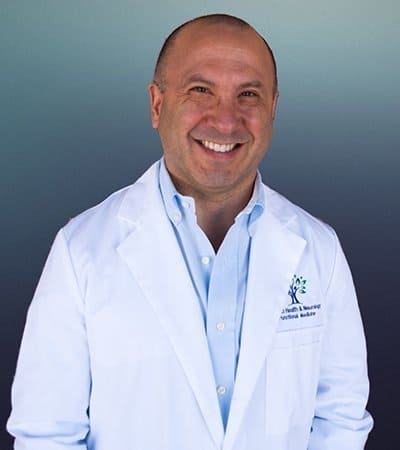
You may have heard the term “functional medicine,” but may not be sure exactly what it is. Shouldn’t all medicine be functional? Of course, but unfortunately conventional medicine focuses primarily on the symptoms – and not the root cause – of disease.
Conventional medicine seems to have a pharmaceutical answer for everything – a “pill for an ill,” as some in the medical profession say. Functional medicine does not disavow the effectiveness of drugs in the treatment of disease, but instead takes a more holistic approach that considers the many factors that impact our lives and our health.
What is Functional Medicine?
Whereas traditional forms of medicine treat the symptoms of an illness or disease, functional medicine aims to address the underlying cause using modeling and analysis of biological systems to find holistic treatment methods. Rarely is there a single factor that contributes to illness; rather, there are typically numerous, tightly interconnected contributing factors.
Because of this, treating one symptom may not alleviate the others, nor would it fix the underlying issue. This is true with inflammatory diseases such as rheumatoid arthritis and those linked to inflammation such as chronic heart disease, stroke, and even depression. To treat these diseases, functional medicine evaluates the complex relationships between the patient’s genetic profile, their environment, lifestyle choices, and myriad other considerations. Only by finding the root cause among these factors can the symptoms be treated long-term.
Functional medicine isn’t about simply keeping a patient alive; it’s about helping them live a better life. It is an ongoing, personalized form of healthcare that understands that people have different genetic makeups, different backgrounds, and lead different lives. As such, functional medicine practitioners recognize that no two people with the same diagnosis have the same root cause or same course of treatment. Functional medicine provides many benefits in disease prevention, by directly addressing poor diet, lack of exercise, and other behaviors that severely compromise a patient’s health. It has been shown in numerous studies that making consistent improvements in these areas can actually change the way someone’s genes are expressed, which may drastically improve symptoms or slow disease progression.
Taking a Look Inside the Toolbox
Dr. Kenneth Sharlin, M.D., M.P.H., IFMCP, is the author of The Healthy Brain Toolbox: Neurologist-Proven Strategies to Improve Memory Loss and Protect Your Aging Brain. He is a board-certified neurologist, consultant, functional medicine practitioner, assistant clinical professor, researcher, author, and speaker. He treats patients suffering from neurological conditions such as Alzheimer’s, ALS, Parkinson’s, and multiple sclerosis at his practice in Ozark, Missouri. Dr Sharlin recently made time to talk with GIOSTAR surgeon Dr. Michael Gellis about his functional medicine program Brain Tune Up! program. You can listen to that podcast here.
During our talk, Dr. Sharlin stressed the need for proper diet and exercise to reduce oxidative stress and inflammation, the two major contributors to many diseases. While diet and exercise are a great start to improving the health of any patient, Dr. Sharlin also emphasises adequate sleep and positive relationships as key elements to a well-rounded regimen for brain health. Patients who have incorporated his recommendations into their lifestyle have seen marked decreases in disease progression and symptom relief.
As with stem cell therapy, functional medicine presents a very compelling alternative to surgery, medication, and other conventional forms of patient care. In fact, the final steps in Dr. Sharlin’s Brain Tune Up! Program focuses on bodily restoration and regeneration, which creates an optimal environment for stem cell therapy to take hold to heal injured tissues and reduce inflammation. Given the strong alignment between the philosophy of his practice and ours, we have partnered with Dr. Sharlin and regularly refer patients to his care.
Looking at the Big Picture
Like Dr. Sharlin, GIOSTAR takes a holistic approach to patient care that emphasizes exercise, diet, and other lifestyle choices. Through stem cell therapy, we provide symptomatic relief to patients suffering from numerous degenerative disorders. The GIOSTAR Chicago team welcomes any questions you may have about stem cell research, or the procedures we currently offer patients. We invite you to contact us via our online form, phone ((844) 446 7827), or email (info@giostarchicago.com).


